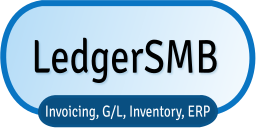The simple one:
Sales order: Customer wants to buy something.
Sales invoice: Customer owes for goods and services delivered.
Business-flow-wise, typically you take an order before everything is done necessary for the transaction to hit the books, and convert it to an invoice when everything that has been done for the income to be realized has happened. This typically means:
1) Goods or services are delivered
2) Any approval/error checking the business requires has happened
One big thing in 1.4 is that approval for invoices is possible so instead of two steps you can actually have three (goods ordered, invoice pending approval, and approved/posted to the books).
An other expl:
A sales invoice hits the books, and represents a financial transaction.
A sales order does not show up in the books. It's upstream of any financial transaction, and so anything on it will not be reflected in any financial report or have any transactions on any of the account charts.
So orders are more for managing your workflow. Invoices are for accounting. Your accountants probably do not care about your orders -- all they care about are invoices.
An other example:
A sales order is what I write down when you want to buy something from me. You ask me to ship you 10,000 staples next week. When I actually *do* ship you the 10,000 stables, I generate an invoice to go with it. Before I ship, I have no receivable asset, but I have 10,000 stables. After I ship, I have a receivable asset posted, but I don't have the 10,000 staples.
If this happens between 10am and 2pm, not a huge difference. If it happens between noon on Dec. 31 and I ship on Jan 4, the next year, this might matter.
Unless I post the order, my factory floor might not actually produce the 10,000 staples, or they shipping department might ship the last 10,000 staples to someone else.
Q: Brian Wolf ( http://permalink.gmane.org/gmane.comp.finance.ledger.smb.user/6417 )
A: Chris Ttravers, John Locke and Michael Richardson
